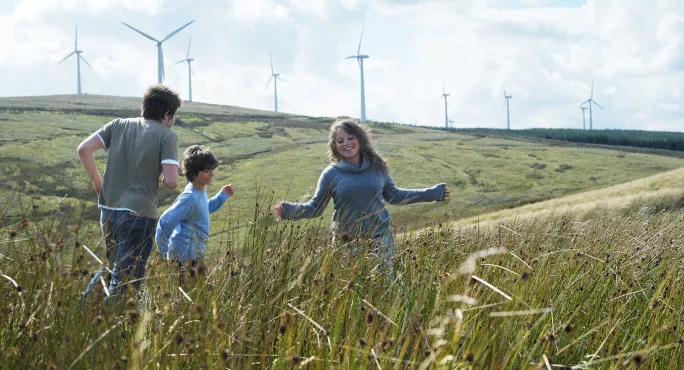How teachers can put sustainability ‘front and centre’

My preferred framing of the climate crisis comes from writer Mary Annaïse Heglar, who stated: “The thing about climate change is that you can either be overwhelmed by the complexity of the problem, or fall in love with the creativity of the solutions.”
Sustainability issues are front and centre of pedagogy and practice in Scotland, and a key national priority for curriculum design. The learning and engagement team at Dynamic Earth often reflect on the key principles that underpin the teaching of sustainability, and it is firmly embedded in our work as we support learners and teachers.
Heglar’s words resonate deeply with the team at our science centre and planetarium, where we seek to foster understanding and empathy for the Earth. We’re driven by a belief that people can be the problem solvers in tackling global challenges - chiefly, creating a sustainable future for humans and our planet.
Interdisciplinary learning is key
A key consideration is the need to drive and help empower more interdisciplinary and project-based learning - acknowledging that the world’s biggest issues don’t sit in isolation. For example, effectively tackling climate change necessitates joined-up thinking from a range of disciplines.
It’s challenging, but making time and space to learn differently across the curriculum can transform how sustainability is taught. This could entail interdisciplinary workshops exploring a broad range of Earth science and sustainability topics, or providing free opportunities for learners to meet scientists and inspirational role models who work in Stem-based research and industry.
- Advice: Inspection tips for middle leaders in Scottish schools
- Quick read: School visits remind us of the complexity and power of education
- News: Centre of Teaching Excellence “should be renamed”
Importance of positive and hopeful messaging
Important, too, is the framing of global issues as challenges and presenting teachers and learners with positive action and hopeful messaging. History has shown humankind is capable of solving issues of enormous proportion - including tech-based innovations to advance healthcare.
In the context of sustainability, getting to grips with the big issues starts with understanding; doomsday messaging isn’t helpful for most. Instead, by effectively framing matters, we encourage positive action.
In Scotland, we’re fortunate to have learning for sustainability as an entitlement for all learners. Indeed, the national “call for action for learning for sustainability” launched at Dynamic Earth last year.
Joining up our learning experiences - including exploring outdoor learning, global citizenship and the United Nations Sustainable Development Goals - is a key way of offering cohesive and equitable learning. Schools and local authorities can work with science centres, for example, as an essential part of delivering educational priorities across the country.
Showing the relevance of science
We also know that learners overwhelmingly want to see the relevance of science in their everyday lives, and for their education to be placed in real-world contexts. “Why does this matter?” is a question we need to ensure we’re always answering.
Sustainability, of course, has an impact on every one of us. Highlighting how it intersects with our everyday choices is a simple but effective way of embedding this in our learning practice.
Providing learners with the opportunity to be leaders of their own learning is another priority, reflected by the likes of the Young Stem Leader Programme, which supports the work of Eco Schools and embeds children’s rights-based approaches.
Sustainability as a concept is not new. However, teachers can aspire to make it front and centre for every learner, equipping our “future ready” citizens with the thinking and skills to write the next chapter of our planet’s story.
Conor Ellis is head of learning and engagement for Dynamic Earth Science Centre and Planetarium, in Edinburgh
For the latest Scottish education news, analysis and features delivered directly to your inbox, sign up to Tes magazine’s The Week in Scotland newsletter
You need a Tes subscription to read this article
Subscribe now to read this article and get other subscriber-only content:
- Unlimited access to all Tes magazine content
- Exclusive subscriber-only stories
- Award-winning email newsletters
Already a subscriber? Log in
You need a subscription to read this article
Subscribe now to read this article and get other subscriber-only content, including:
- Unlimited access to all Tes magazine content
- Exclusive subscriber-only stories
- Award-winning email newsletters
topics in this article



